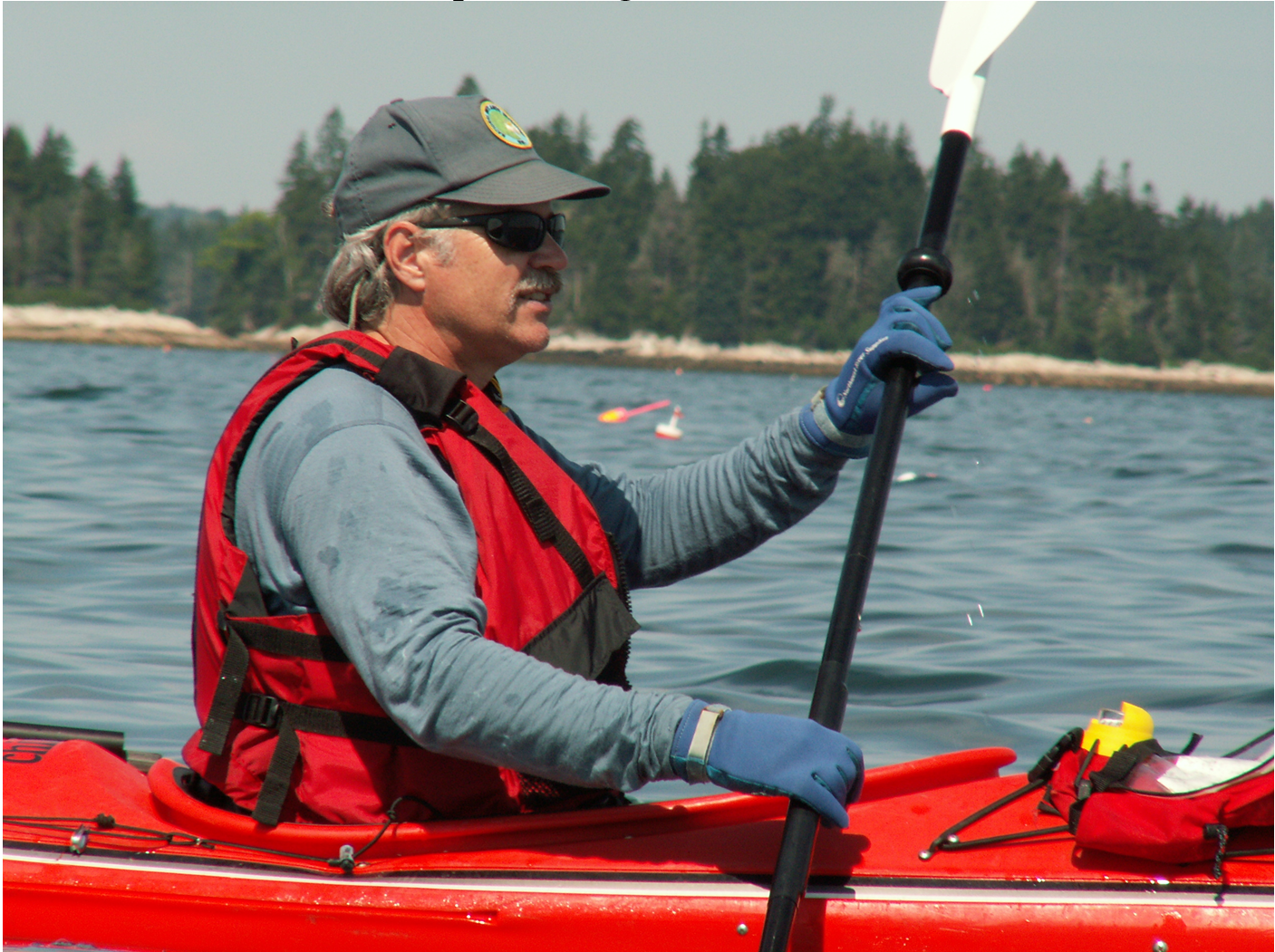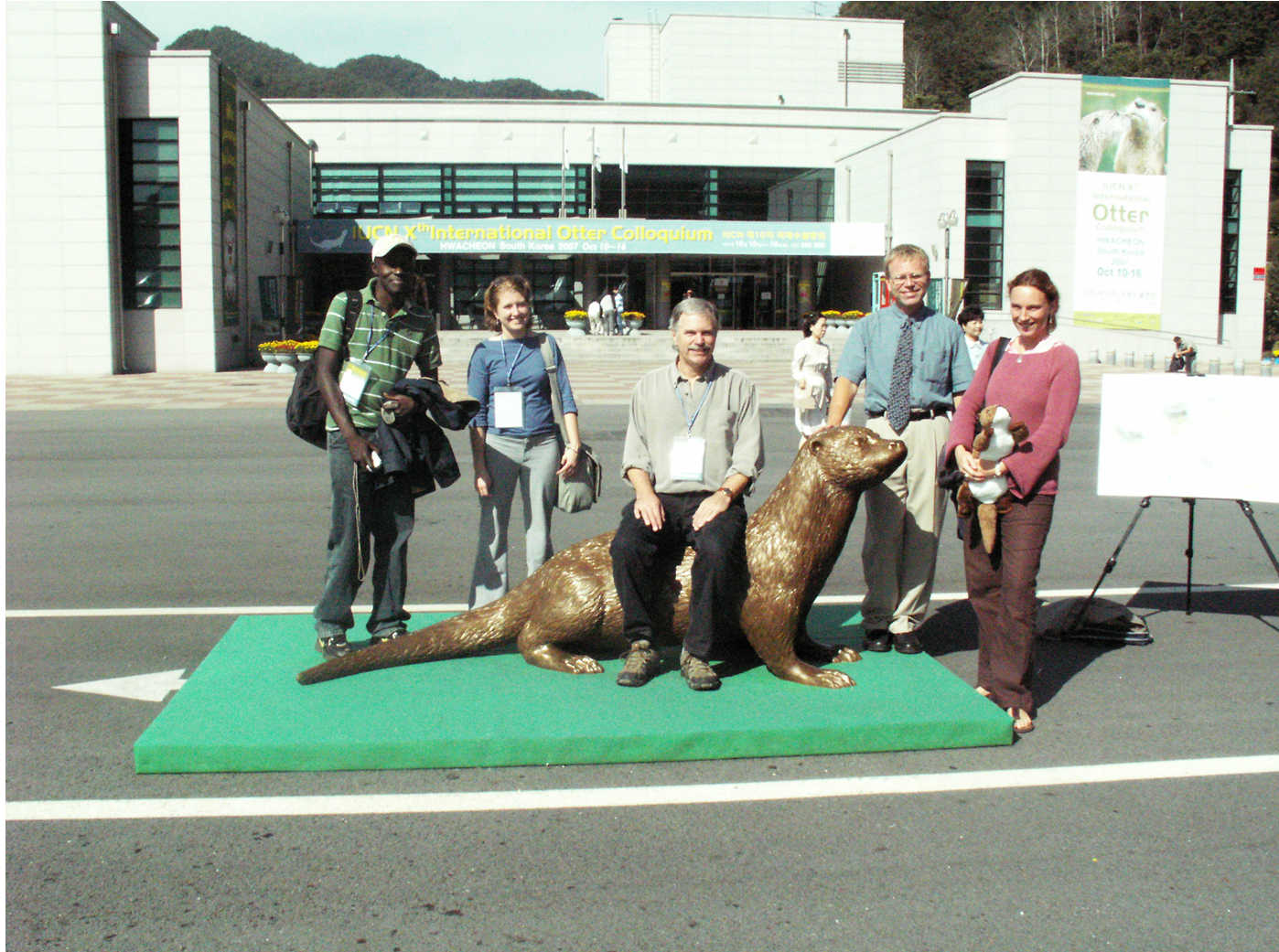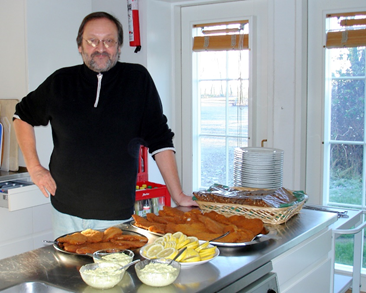IUCN/SSC Otter Specialist Group Bulletin

©IUCN/SCC Otter Specialist Group
Volume 38 Issue 5 (December 2021)
Obituaries
Previous | Contents | Next
 Robert P. Brooks, a long-time and dedicated member of the Otter Specialist Group (OSG), died at his home in central Pennsylvania on May 17, 2021. Rob developed Creutzfeldt-Jakob disease, a rare and horrible disease that progresses rapidly and is always fatal. Many OSG members knew Rob through his participation at OSG conferences at Frostburg, South Korea, and the most recent gathering in China, and his dedication and accomplishments in preserving wetlands and the precious plants and animals dependent on these habitats. However, those most familiar with Rob were also aware of his kind, gentle, and thoughtful nature – a person always willing to lend comfort or assistance and whose presence made the world a better place.
Robert P. Brooks, a long-time and dedicated member of the Otter Specialist Group (OSG), died at his home in central Pennsylvania on May 17, 2021. Rob developed Creutzfeldt-Jakob disease, a rare and horrible disease that progresses rapidly and is always fatal. Many OSG members knew Rob through his participation at OSG conferences at Frostburg, South Korea, and the most recent gathering in China, and his dedication and accomplishments in preserving wetlands and the precious plants and animals dependent on these habitats. However, those most familiar with Rob were also aware of his kind, gentle, and thoughtful nature – a person always willing to lend comfort or assistance and whose presence made the world a better place.
Rob’s professional accomplishments are numerous and impressive. His educational background includes a BS in Biology at Muhlenberg College, Allentown, Pennsylvania and MS and PhD degrees in Wildlife Biology at the University of Massachusetts, Amherst, both in the United States. Rob’s graduate research demonstrated an early devotion to wetland wildlife, resulting in a MS thesis and PhD dissertation respectively focused on American beavers (Castor canadensis) and muskrats (Ondatra zibethicus). Soon after completing his PhD, Rob began his academic career at The Pennsylvania State University (Penn State) in 1980, where he retired to professor emeritus status in 2018 after 38 years of dedicated academic service. At Penn State, Rob contributed in various capacities, including Professor of Wildlife and Wetlands; Professor of Geography and Ecology; and the Director of “Riparia,” an interdisciplinary program that he conceived, developed, and made prominent at the University. Riparia was designed to integrate biological, physical, social, and educational (particularly outreach efforts to citizen and conservation groups) elements of wetland conservation through conducting rigorous scientific assessments with the intent of applying outcomes to enhance and preserve wetlands and associated aquatic communities. In recognition of these dedicated efforts to conserve wetlands, Rob was the 2013 recipient of the of the Environmental Law Institute’s prestigious “National Wetlands Award,” in the area of science research. Rob’s research program has contributed over 150 publications in peer-reviewed journals and proceedings, book chapters, books, and non-refereed journal articles. Topics of these writings range from wetland hydrology, factors influencing wetland plant communities, and numerous wetland-dependent vertebrates – the North American River otter was the focus of over 15 of these writings. Rob was particularly proud of his recent book (co-edited with his former PhD student, Denice Wardrop), Mid-Atlantic Freshwater Wetlands: Advances in Wetlands Science, Management, Policy, and Practice, which represents a culmination of his dedication and research activities pertaining to wetlands in Mid-Atlantic region of the Eastern United States. Rob was also an active participant at numerous scientific meetings and various professional societies, including particularly close affiliations with the Society of Wetland Scientists and The Wildlife Society. Rob supported his research program (primarily comprised of graduate students) by obtaining over 110 grants totaling over $30M USD.
Among Rob’s greatest personal fulfillments and for which he derived the most professional pride and pleasure was the opportunity to mentor graduate students – over 40 graduate students completed MS or PhD degrees under his guidance. I was one of Rob’s early graduate students and had the good fortune of knowing him for almost 40 years. Initially Rob was my PhD advisor and mentor but over the last 25 years we were mostly friends who mixed in presentations and manuscripts to justify traveling to wildlife conferences in beautiful parts of the world. Our most recent travel and one I will most remember was to the most recent otter conference at the Wolong Nature Reserve in China, where Rob delighted in interacting with OSG members during the conference and traveling with those that participated in the post-conference nature tour. During our many personal and professional travels, we discussed many things, often graduate students. Rob’s smile would always grow especially wide, and his eyes would have a special glow when talking about the graduate students that had worked with him - I’m sure they all are aware, but he was so grateful, proud, and appreciative to have been involved with such a dedicated group of individuals, for their contributions to his conservation efforts, and their ongoing contributions to conservation. Ultimately, Rob regarded mentoring students, especially graduate students, as the most rewarding aspect of his professional career and the most substantial contribution a professor makes to conservation.
Rob’s professional achievements have undoubtedly established a meaningful and enduring conservation legacy. However, from our discussions I learned that without doubt Rob considered being part of a wonderful family to be his proudest and most satisfying accomplishment. His wife Becky, their children Ben and Emily, and their four grandchildren were a constant focus of his discussions and what put the brightest twinkle in his eyes. He so loved Becky and felt so fortunate to have her as a life partner. I can’t imagine a more perfect pairing – both so kind, gentle, and considerate. Understandably, these endearing personal characteristics are also possessed by Ben and Emily. At conferences, he would “light up” when there was an opportunity to share stories to colleagues about his children and their accomplishments. More recently, the grandchildren had become the focus of his attention and stories. I can imagine no greater misfortune then those grandchildren growing up without experiencing more of Rob’s love, kindness, and wisdom, but I also know that Becky and Ben and Emily and their wonderful spouses will be imparting such characteristics to the grandchildren and will be sharing wonderful stories about their grandfather.
With deep sorrow, but also with deep gratitude and fond memories,
Tom Serfass
 Rob’s family are planning a variety of ways to highlight Rob’s interest, dedication, and contributions to conserving wetlands and wetland dependent wildlife, including the creation of North American river otter and belted kingfisher statues as part of an educational display in Rob’s name at the Penn State arboretum. In 2007 the IUCN Otter Specialist Group had its conference in South Korea – as you can see in this photo Rob clearly demonstrated an affinity for otter statues and I have little doubt that he would be delighted to have his name associated with an otter statue intended to inspire young people about the importance of protecting the aquatic resources he so loved and committed his life to preserving.
Rob’s family are planning a variety of ways to highlight Rob’s interest, dedication, and contributions to conserving wetlands and wetland dependent wildlife, including the creation of North American river otter and belted kingfisher statues as part of an educational display in Rob’s name at the Penn State arboretum. In 2007 the IUCN Otter Specialist Group had its conference in South Korea – as you can see in this photo Rob clearly demonstrated an affinity for otter statues and I have little doubt that he would be delighted to have his name associated with an otter statue intended to inspire young people about the importance of protecting the aquatic resources he so loved and committed his life to preserving.
A lifelong fascination, interest, and appreciation of aquatic habitats permeated Rob’s professional and personal activities. He particularly enjoyed his annual kayaking trips along the Maine Coast where he camped on coastal islands.
 It is with great sadness that we report the death of our good friend and colleague for many years, senior biologist Bjarne Søgaard. Bjarne passed away on November, 27 2021 after a short illness with hospitalization at Aarhus University Hospital.
It is with great sadness that we report the death of our good friend and colleague for many years, senior biologist Bjarne Søgaard. Bjarne passed away on November, 27 2021 after a short illness with hospitalization at Aarhus University Hospital.
Bjarne was deeply involved in the work and the management that led to the success of reversing the population development for the otter in Denmark. From being isolated in northwestern Jutland with approx. 200 individuals left in the early 1980s, the otter is today found in a large part of Denmark: Jutland and the islands of Funen, Zealand and Lolland-Falster. The explanation is a formidable collaboration between the World Wide Fund for Nature - WWF and Animal Protection - Denmark, managing authorities, research institutions and volunteers. Orders for the use of stop grids in eel traps and the establishment of fauna passages at road bridges were from the beginning in ‘Project Otter’ seen as the most important management measures in relation to reversing the negative development. Over the years, Bjarne has participated and contributed with knowledge and experience to several conferences and meetings around the world related to otters and other mustelids. The most recent was the 33rd European Mustelid Colloquium, 8-11 October 2019 in Lisbon, Portugal.
Bjarne was, if anyone, professionally dedicated to his work. He was employed as a biologist in the Ministry of Agriculture's Game Administration (later the Forest and Nature Agency) on Kalø Estate in 1985. Bjarne was a valued and well-liked employee here, and was especially involved in the establishment of the first hunting-free core areas for birds in Denmark. It became a huge success for both the birds and the hunt.
When a position became vacant at the Danish Environmental Research Institute in 1999, Bjarne applied for this, and was employed here until 2017, when he retired. In parallel with his work with otters and reserves, Bjarne was also in his long working life responsible for the Danish species monitoring program (NOVANA) with the development of technical instructions, coordination of the monitoring and reporting. He had a very large network and countless employees in agencies, counties and municipalities. Biologists from research institutions in Denmark and Europe have benefited from Bjarne's overview, with his positive energy and ability to create collaboration and results.
Bjarne was an institution on Kalø Estate, where he was a committed, funny and very helpful colleague. He had a great interest in Kalø's history and was involved in the staff and art association and did his part to make Kalø a good working place.
We will miss him and our thoughts go to his family.
Aksel Bo Madsen and Morten Elmeros